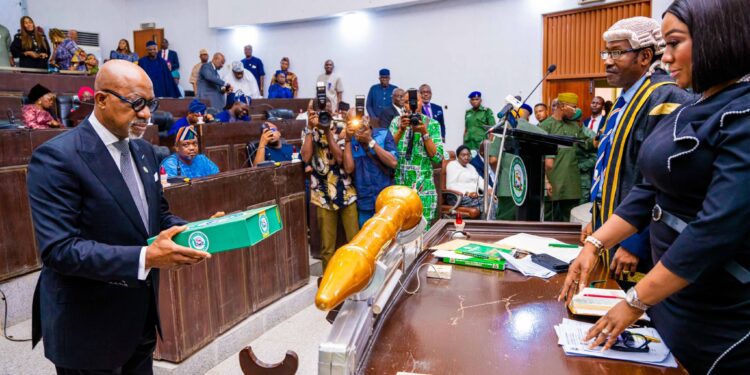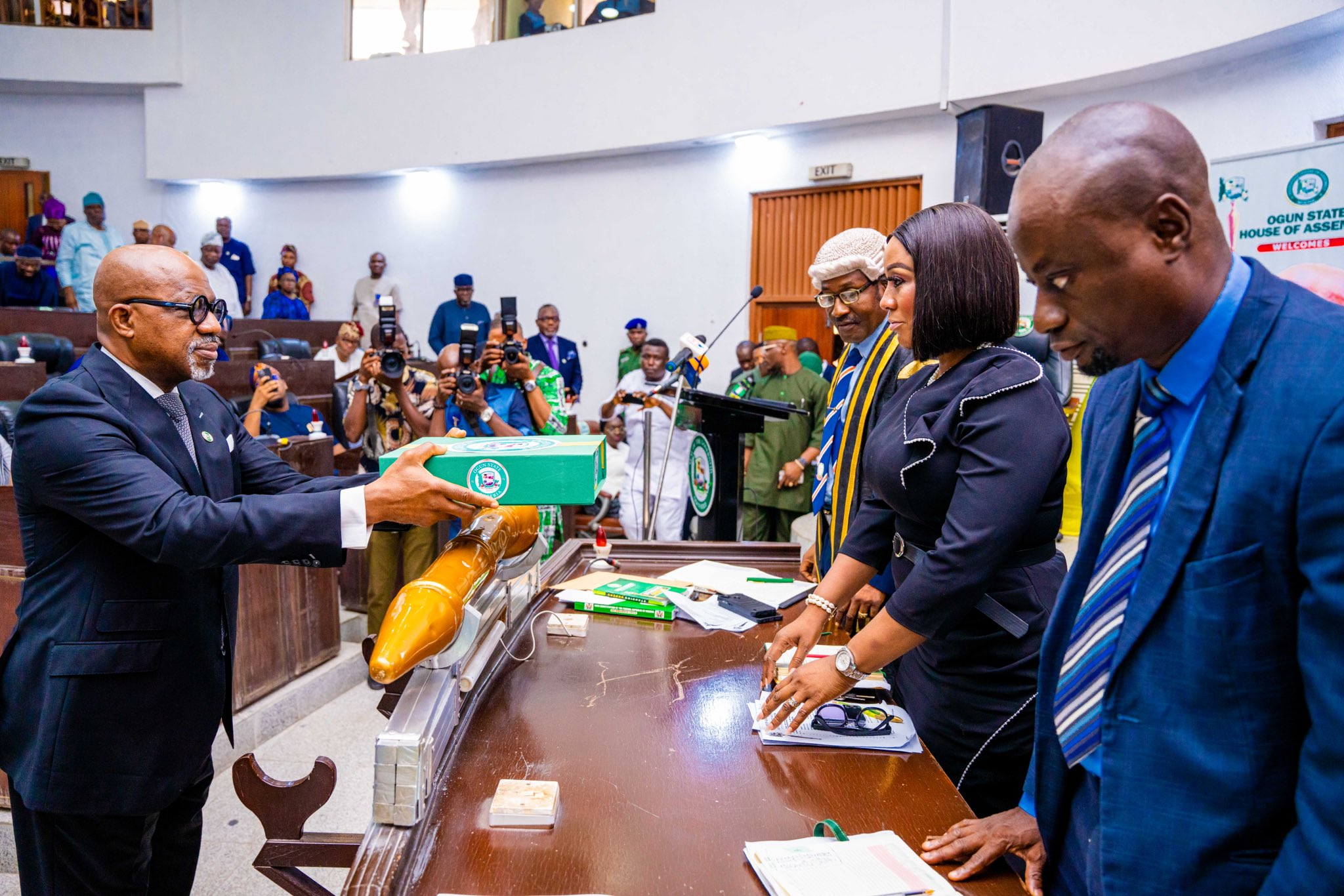
The Governor of Ogun State, Prince Dapo Abiodun has submitted a budget proposal of N703.028 billion for 2024 to the State House of Assembly for approval.
Termed the “Budget of Sustained Growth and Development,” Abiodun outlined that the total comprises N415.66 billion for capital expenditure and N287.37 billion for recurrent expenditure. Additionally, the budget allocates N95.05 billion for personnel costs, N105.88 billion for overhead expenses, and N59.09 billion for public debt charges.
He stated,
- “The revenue composition includes Ogun State Internal Revenue Service (OGIRS) with an estimate of N100.81 billion and other Ministries, Departments, and Agencies (MDAs) estimated at N139.73 billion totaling N240.54 billion,”

Abiodun further detailed that capital receipts, encompassing internal and external loans, grants, and aids, were anticipated to reach N240.24 billion.
He emphasized that infrastructure would absorb N209.122 billion, constituting 30% of the budget.
The governor outlined that education was allocated N109.219 billion, representing 16 per cent; the health sector received N81.185 billion, accounting for 12%, while N28.886 billion, equating to four per cent, was designated for housing and community development.

In addition, Abiodun disclosed that agriculture and industry would utilize N14.213 billion, making up 2%, and N22.872 billion, representing 3%, was earmarked for recreation and culture.
He underscored that in 2024, the state government would persist in prioritizing the completion of ongoing projects, those with revenue potential, and initiatives contributing to employment generation.
The Governor said,
- “Education remains the bedrock of any nation. As such, we are committed to revitalizing the Education Sector.”
- “As a strategic move, we shall have an Education Summit in the first quarter of the new year where numerous challenges facing the sector will be considered to reposition the quality of education in the Ogun State.”
- “The 2024 budget proposal is the fifth prepared by this Administration. It reflects the serious challenges currently facing our state.”
- “The key reforms necessary to address them, and imperatives to achieve higher, more inclusive, diversified, and sustainable growth.”



